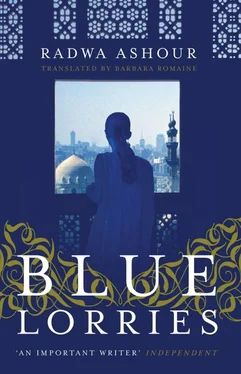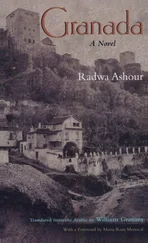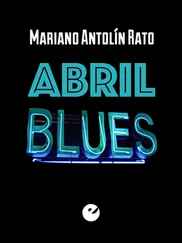In my letter to Hazem I told him about the road to the town of Al-Khiam, about the colour photographs of young men that were to be found along the way: ‘At every position where there had been an operation by the resistance was a pole — like a lamp-post, only instead of being topped by a light it bore a picture of a martyr who took part in the operation: a large colour photograph in which the facial features stood out clearly, and underneath the picture was the young man’s name, with the date and the year in which he was martyred.’
I told him about the prison at Al-Khiam: its location overlooking Palestine and Syria and Mount Amil in Lebanon. I described it to him minutely, beginning with the list hung on the left side of the entrance to the courtyard: a record of all the gaolers who had engaged in torture. I described to him the interrogation chamber, the ‘hanging rod’, the large cells and the small ones — these were one square metre and not quite two metres in height, where a prisoner would spend a month or two with no opportunity to stretch out or to extend his legs fully. I said, ‘I went into one of them and pushed the door shut — I couldn’t see my hand in front of my face, in the gloom.’ I told him about the box: A prisoner would sit cross-legged in there for days, in a space whose dimensions measured one cubic metre. I told him about the exercise yard in the sun, roofed with barbed wire, where prisoners were allowed to go for twenty minutes once every three weeks. The prison was left as it was after liberation, to become a museum for visitors, but the walls were repainted, and so we lost everything that had been written or inscribed or drawn on them. There was nothing, now, on the walls.
I did not tell him what I had heard about the various kinds of torture, or the breakouts that had been attempted despite the minefield encircling the prison, but I related in detail two of the many stories I had heard: the tale of Ali Qashmar, who had spent ten years in the prison, and that of Abdallah Hamza, who had stayed there only three weeks.
‘Ali was from the town of Al-Khiam. They arrested him when he was fourteen years old. He didn’t know what the charge was. He said, “I was like other boys my age: I hated the occupation, but all I thought about was fun and games. I wasn’t much concerned with the future, and if I did think about it, then my thoughts went no further than the hope that I would pass my examinations.”
‘He was arrested and tortured, tortured extensively.
‘His mother went up to the roof of her house every day. She gazed toward the buildings of the nearby prison and talked to her son, as if her words might reach him, as if he would respond to the things she told him. The neighbours would hear her, and gently bring her back down from the roof.
‘When he got out of prison, his mother didn’t recognise him. In her mind he was a small boy, and standing before her was a tall young man with a beard. Smiling, he said to her, “Mother, it’s me, Ali!”
‘She knew him by his smile.
‘He, too, failed to recognise himself one day when he looked at himself in the mirror in the guard’s room. He said, “Reflected in its surface I saw someone I didn’t know. I turned to look behind me, but found no one.
‘ “I had spent ten years in prison. The teacher Abdallah Hamza, on the other hand, was there only three weeks. They hung him on the ‘hanging rod’ and kept beating him and pouring cold water on him (this was in February) until he died. For two and a half years Fayrouz, his wife and the mother of his three children, continued to visit the prison, travelling the fifty kilometres from her village to Al-Khiam, bringing her husband clothes and food, which she would leave with the guard and then go home. For two and a half years she was unaware that she was a widow; unaware, for two and a half years, that her children were fatherless.”
‘The stories of Ali Qashmar and Abdallah Hamza were told to me by the guide who conducted me through the prison. He, too, was a former prisoner. He did not tell me his own story. He spoke of himself only as one member of a larger group, as he led me from cell to cell, from the interrogation chambers to the “hanging rod”, explaining everything, exhaustively.’
At the end of the letter, I told Hazem, ‘In my book about prison, I’ll devote a chapter to Al-Khiam, which, unlike the other chapters, will discuss the moment of liberation. Perhaps I’ll devote two chapters to it — one to be the focal point in a book about life in prison, and the other, with which I’ll conclude, on liberation.’
Chapter twenty-two
Novelty
Nadir was training me to use the computer. I found it confusing, and felt completely stupid at first, then less so. I groped my way as timidly as someone taking up a pen for the first time, or someone expected to be responsive in a language of which he has learned only the rudiments. Losing patience, I would say, ‘I get it now. Let me figure it out.’ He would leave me alone to flounder for a bit, and then I would call for help, demanding explanations every few minutes. Nadir would come and sort me out, but he would overdo the explanation, going on and on until I protested, ‘What, do you think I’m an idiot?’ He would go away again, and things would seem simpler for a bit, then get complicated again. Then I would summon Nadeem.
For the first week, working with the programmes and files and windows and message boxes that jumped on to the screen in front of me — to which I didn’t know whether I should answer ‘Yes’ or ‘No’ — I felt I was wandering a maze in the streets of an unknown city. I would stop. Then I would make up my mind and say, ‘This is the way,’ and proceed with some degree of confidence, but this would gradually fade, until I became convinced that I was simply lost, with no idea how to get to where I wanted to go, or how to go back the way I had come. I said, ‘Teach me how to work with just the documents.’ I was good at writing quickly on the keyboard; now I wanted to learn how to open a new document, how to close it, how to get back to it, and how to organise what I’d written and edit text by adding to it or cutting from it. He taught me.
The following day, I opened a new document, and began translating. I put the text on my right and looked at the Arabic sentences, moving my fingers easily on the keyboard, as the French sentences took shape on the screen before me. I usually translated quickly, and as a rule I would go back over the draft of what I had translated at the end of each paragraph. Now the emendation process was simpler and faster: I could delete a letter or a word or a line and substitute another. No need to draft text only to white it out and then go back to it for the final adaptation, to be copied for the third time. I worked assiduously on the document for four days, during which I translated fifty pages.
I was happy, as I generally was, when my translation of a text pleased me, and happier still about my success in working with a device that, only one week earlier, had seemed like an insoluble puzzle.
What had happened? Some keystroke resulting in some action or other. The document had disappeared. For two hours, I tried to get it back, but I got nowhere. I was certain it was hiding somewhere in the depths of the machine, so I sat waiting for one or the other of the boys to return and find it.
Nadir came home and as usual declared that he was starving to death, that if he didn’t eat immediately we would have to summon an ambulance, and that before the ambulance could get there the doctor would have pronounced him dead!
I took him by the hand and sat him down before the computer. ‘The document first,’ I told him, ‘and then you can perish at your leisure, I won’t stop you!’ Hamdiya stared, astonished, but held her tongue.
Читать дальше











